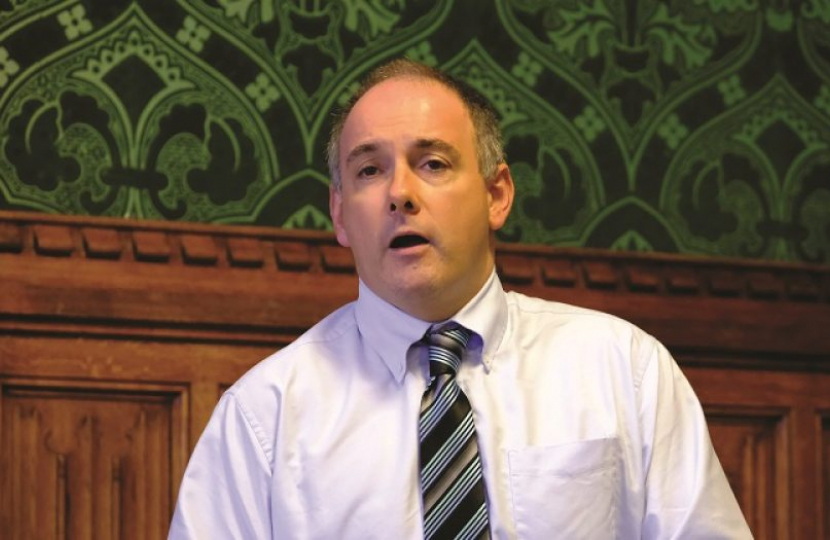
The Education Committee today publishes a response from the Secretary of State for Education, Rt Hon Kit Malthouse MP, to its letter regarding the Government’s special educational needs and disabilities (SEND) review.
The Committee’s initial correspondence raised concerns, based on their predecessor committee’s Special Educational Needs and Disabilities report, about the lack of resources in the SEND system and funding being targeted at more costly, late-stage interventions.
The Committee’s letter also urged the Government to heighten accountability for schools and councils falling short on SEND requirements and to increase support for families navigating the SEND system.
The Government’s response addresses these concerns, referring to a number of pledges made by the previous Secretary of State. However, Committee’s Chair, Robert Halfon, has now urged the Government not to renege on these promises, in light of suggestions from the new Chancellor that areas of government spending may need to be cut.
The Government’s response covers several concerns raised by the Committee:
High needs funding: The Committee’s SEND report and letter to the Secretary of State warned of a “significant funding shortfall” for SEND services. The Government recognised this call, and highlighted its commitment to increasing high needs funding for children and young people with more complex needs by 21% by the end of the 2023-24 financial year, to £9.7 billion.
New national framework of funding bands: The letter from the Secretary of State points to the Government’s proposal in its SEND Green Paper to introduce a national framework for funding bands and tariffs to reduce current inconsistencies between councils. These would be matched based on need and type of education, as set out in the new national SEND standards. This recognises the recommendations from the Committee’s report and initial letter which pointed out that funding was being spent inefficiently by focusing on later stage, more specialist, intervention.
Disabled apprenticeships: The Committee’s SEND report noted that there was insufficient support for internships and apprenticeships for SEND pupils. The Government listened to our recommendations and has now launched the Disabled Apprentice Network. This has been instituted to provide insight and evidence on how to attract and retain disabled people into apprenticeships.
New ‘strong trust’ criteria: The Government has launched a regulation and commissioning review to better define what can constitute a ‘strong’ academy trust. New assessment criteria will include inclusive practice. The Committee’s SEND report found that Ofsted and the Care Quality Commission (CQC) inspections had previously judged half of local authority areas (47 of the 94 areas inspected by the end of July 2019) to have significant weaknesses.
Family-oriented inspection framework: During its SEND inquiry, the Committee heard numerous examples of schools “off-rolling” SEND students – removing them from schools without excluding them. The Government highlighted that its existing Education Inspection Framework includes an emphasis on off-rolling but their letter acknowledges the work of the Committee and highlights that the proposed new SEND inspection framework will pay greater attention to the experiences of children and families in the SEND system, who the Committee had previously noted were stuck in an “unkind treacle of bureaucracy”.
Increased Ombudsman role and neutral advocate: The Government is currently engaging with the Local Government and Social Care Ombudsman to increase their responsibilities in schools. The Committee previously called to expand the Ombudsman's powers beyond “everything up to the school gate”. The Department for Education has also noted the Committee’s recommendation to introduce a neutral advocate to address the challenges families face in navigating the SEND system.
Education Committee Chair Robert Halfon MP said:
“This Correspondence was a welcome answer to our concerns about the SEND system. It is founded on several key pledges which would serve as important first steps towards providing vulnerable children with the support they desperately need. I urge the Government not to backtrack on these pledges.
Children with SEND desperately need the funding increases they were promised. The disabled apprentice framework has huge potential to give students with SEND opportunities and skills they couldn’t get elsewhere.
Similarly, the Government must keep its pledge to crack down on schools that shut the door on the children they have a duty to help. A stronger Ombudsman, better defined ’strong trust’ criteria, and a neutral advocate will all help lift families out of the treacle of bureaucracy currently clogging the system.
Students with SEND are losing opportunities and struggling to access adequate education. The Department’s promises are good first steps, but they need to be turned into reality for the people they are designed to help.”
